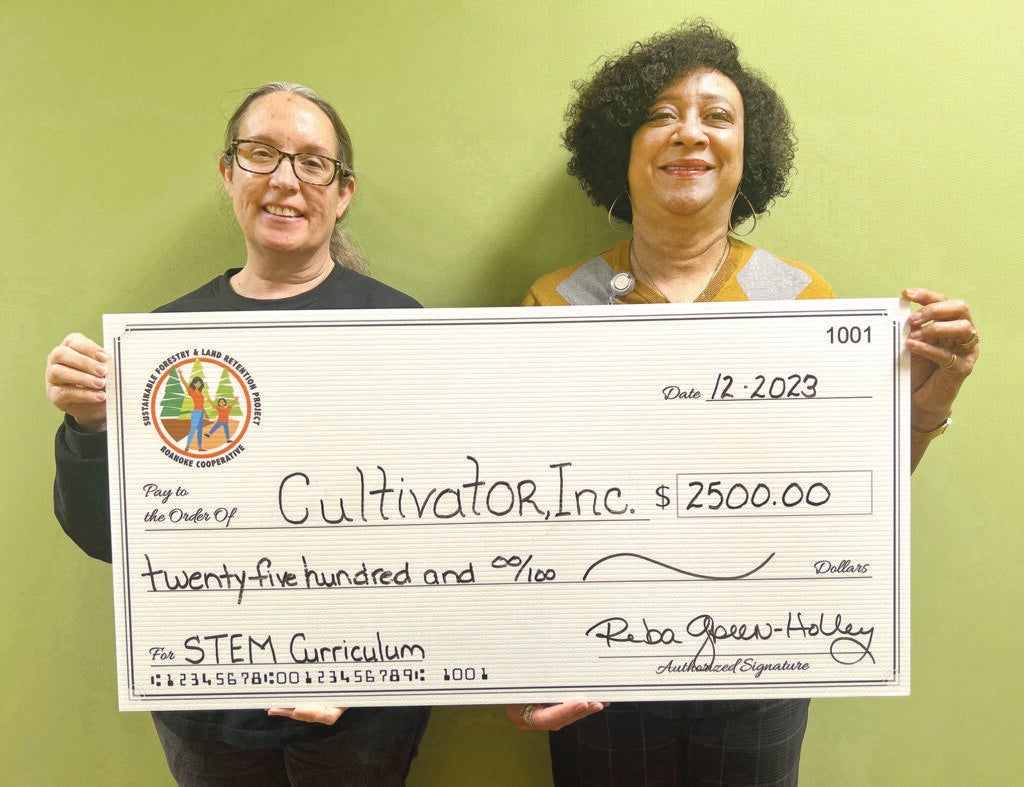Grants assist youth groups
Published 5:56 pm Tuesday, April 2, 2024

- Caroline Stephenson (left), founder of Cultivator Inc., accepts one of the mini-grants from Reba Green-Holley, youth program coordinator for the Sustainable Forestry and Land Retention Project. Contributed Photo
|
Getting your Trinity Audio player ready...
|
AHOSKIE – The Sustainable Forestry and Land Retention Project (SFLRP) announced last week that it has made a series of mini-grants totaling $10,000 to several youth organizations in northeastern North Carolina to help them fulfill their missions.
The mini-grants were awarded to Gates County 4-H, Hertford County 4-H, Central Middle School in Gatesville, and Cultivator Inc., a community-focused nonprofit organization in Murfreesboro.
The funds will help the entities carry out their youth development programs, which align well with the youth-oriented activities that SFLRP conducts.
SFLRP is a nonprofit organization that Roanoke Cooperative helped establish in 2013 to enhance families’ quality of life in the northeastern part of the state. SFLRP helps families in 13 counties increase the income and asset value of family-owned forestland; it also encourages forest health and land retention to help families create intergenerational wealth.
One of SFLRP’s major activities is an annual Youth STEAM Summit, a day-long summer conference to educate students in grades 9-12 throughout the region about science, technology, engineering, agriculture and mathematics – especially career opportunities in those fields. The STEAM Summit features exhibits from universities, the forest industry, and energy, conservation and forestry organizations and agencies.
This year’s STEAM Summit will take place July 25 in Rocky Mount.
“It is a high priority for us to bring young people – especially socially disadvantaged youth – closer to the environmental sciences, to forestry and climate subject matter, and to the tremendous employment prospects that exist in STEM disciplines,” said Reba Green-Holley, SFLRP’s youth program coordinator. “We are extremely pleased that, through the SFLRP program, we’ve been able to provide mini-grants to several deserving organizations in our part of the state that also care dearly about the region’s young people and their futures.”
The federal agency that tracks labor trends has projected that more than one million STEM jobs will be created this decade, Green-Holley noted.
“Shame on us if we don’t do more to help the youth in our region reach their potential, occupationally and otherwise,” she said.





